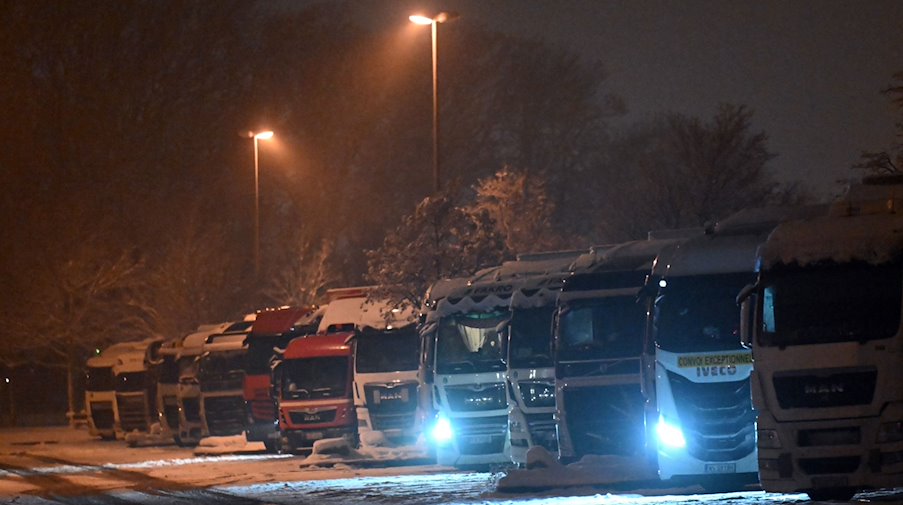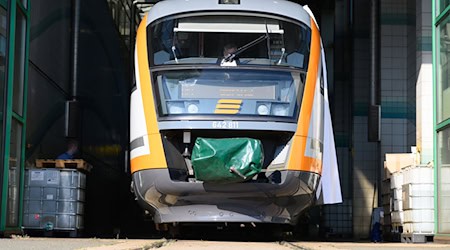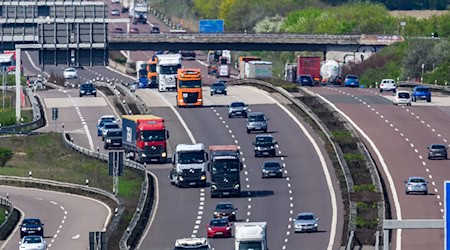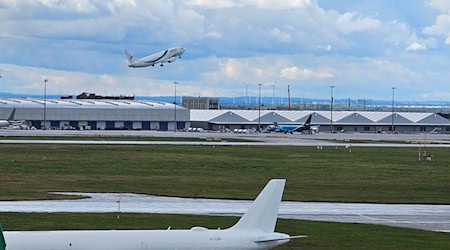According to the chambers, the rising toll fees for trucks on German highways will once again accelerate the price spiral in trade and commerce in Saxony. A family of four could face additional costs of up to 370 euros per year, said Sarah Sieber, Managing Director of Communications at the Leipzig Chamber of Industry and Commerce, in a survey conducted by Deutsche Presse-Agentur, citing projections from logistics associations.
Forwarders would hardly have any more leeway in pricing and would presumably pass on the higher tolls to end customers. "A significant increase in the consumer price level is not to be expected even if the additional toll costs are passed on by the road haulage companies," said a spokeswoman for the Saxon Ministry of Transport. The toll only accounts for a small proportion of transport costs.
The truck toll will skyrocket because carbon dioxide emissions will be included in the calculation from December 1, 2023. This means that all vehicles with a total mass of more than 7.5 tons will be subject to a surcharge of 200 euros per tonne of carbon dioxide emitted. In addition, from July 1, 2024, a toll will also have to be paid for vehicles weighing more than 3.5 tons, which were previously exempt. Only emission-free vehicles, such as electric trucks, will remain toll-free until the end of 2025.
This will increase federal revenue from around 8 billion euros this year to a forecast of more than 15 billion euros next year. From 2024 to 2027, the additional revenue is expected to total around 30.5 billion euros. Half of this will go towards improving the federal trunk roads - the rest will mostly be spent on the railroads.
Whether the increase will affect consumer prices also depends on whether the transport companies can push through higher prices with their customers, for example in the retail sector.
"We will pass the higher toll on to our customers one-to-one," announced Andreas Roitzsch, Managing Director of Roitzsch & Sohn Spedition GmbH in Wilsdruff near Dresden. "There is no alternative. If you don't pass it on, sooner or later you will say goodbye to the transport market." The company, which was founded in 1953 and has 34 employees, has a fleet of 27 trucks.
It is almost macabre to believe that the higher toll will have little impact on prices in the trade, said Lars Fiehler, spokesman for the Dresden Chamber of Industry and Commerce (IHK). He does the math: With around 400 kilometers a day on freeways or federal roads, the toll costs for a vehicle would more than double from around 20 euros previously to around 46 euros. In the IHK district of Dresden alone, more than 3,000 companies with a total of around 82,000 trucks and 27,000 tractor units will be affected by the toll increase from December.
However, the hauliers will not be able to pass on the new costs incurred in December so easily, believes Kevin Friedrich, traffic officer at the IHK Chemnitz. "Contract adjustments are generally not possible during the year." In addition, many customers have payment terms of 20 to 30 days, meaning that freight forwarders have to make financial advance payments. "This reduces the liquidity of transport companies." According to Friedrich, almost 2,000 companies with 18,400 employees are listed in the Chemnitz Chamber of Industry and Commerce district in the freight forwarding and goods transport sector.
The Saxony Trade Association criticizes the inclusion of trucks weighing 3.5 tons or more in the toll from July in order to use the revenue for investments in the railroads, among other things. "This is the wrong approach," said René Glaser, Managing Director of the association. For the retail sector, there is virtually no alternative to road transport. "In our opinion, there is little hope that the railroads will be able to make a noticeable contribution to supplying citizens with everyday goods in the foreseeable future," said Glaser.
Copyright 2023, dpa (www.dpa.de). All rights reserved










